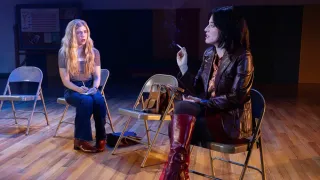January 29, 2020
Nashville Officer Charged with Murder Chided for Not Using Gun in Earlier Incident
READ TIME: 2 MIN.
Newly revealed police records show a white Nashville police officer charged with fatally shooting an armed black man who was running away had been reprimanded by supervisors months earlier for not shooting another armed suspect in a similar case.
Officer Andrew Delke, 25, had been on the force for about a year when he used a stun gun to arrest an armed suspect, Terry Crowell, who ran from him in November 2017, WPLN News reported.
Sgt. Matthew Boguskie later held an "informal counseling session" with him, telling Delke that he should have used his firearm, the records state.
Delke told the sergeant that he didn't pull his service weapon because of what he called "the hostile climate towards police use of force throughout the country." He also told Boguskie that at the time he was thinking of Officer Josh Lippert, the former Nashville officer who shot Jocques Clemmons, a black man, after a traffic stop.
"I discussed with Officer Delke that we cannot allow outside factors to detract us from our training and what we know we should do in dangerous situations, particularly situations that could quickly rise to a deadly force situation," Sgt. Boguskie said in the report.
In a memo sent later that month, North Precinct Cmdr. Terrence Graves agreed with the sergeant, and suggested more training across the force, but Metro police said that was never implemented.
Delke has pleaded not guilty to first-degree murder in the killing of Daniel Hambrick, 25, who was shot from behind while running from officers in July 2018. A trial has been set to begin March 16.
It's the first time a Nashville officer will face a murder charge for killing someone in the line of duty, WPLN News reported.






